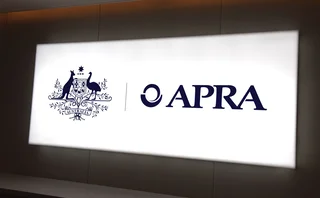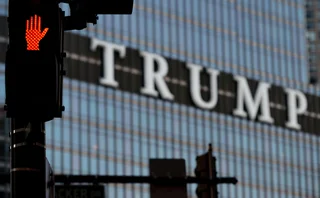
Compensation regulation edges closer
Moves made by politicians around the world suggest regulation of compensation practices at financial firms is moving closer
French banks BNP Paribas and Société Générale have already promised to defer two thirds of bonus payments for three years and to pay out a third in shares, while also pledging to stop offering guaranteed payouts to new hires.
Sarkozy intends to ask the G-20 at its meeting in Pittsburgh in September to consider capping the total amount paid out by banks in bonuses and to consider setting limits on the size of individual bonuses.
Germany has already spelled out new rules on compensation that will go into effect on January 1, but more recently the chairman of the UK regulator, Adair Turner has suggested banks are earning too much money, and curbing this via a tax on transactions will be one way to ensure the bonuses are reduced. This provoked a furore in the city, which understandably fiercely opposed his proposal. The UK government has also denied it is considering a tax on transactions. While Angela Knight, chief executive of the British Bankers' Association, also defended the financial industry's role in the economy, saying the sector was a main provider of jobs and tax revenues and could be undermined by the wrong kind of taxes or regulation.
Moves in Europe to curb compensation will be of keen interest to president Obama and his newly appointed pay czar Kenneth Feinberg, who has been tasked with establishing pay guidelines for executives at the rescued companies. It is as yet uncertain whether the terms he decides upon will be made public over fears by bankers that highly remunerated individuals will be targeted by populist anger.
"There is a tension between not wanting to put on the front page of every newspaper in the country the specific compensation packages of these individuals ... versus the public's right to know," said Feinberg in a statement on August 16.
The Treasury Department has indicated it will not make public information that would identify individual employees, but suggested it will publish final determinations on pay packages in compliance with the Privacy Act.
Reuters has submitted a request under freedom-of-information laws to review the pay proposals submitted by the seven companies. The Treasury has yet to respond.
Only users who have a paid subscription or are part of a corporate subscription are able to print or copy content.
To access these options, along with all other subscription benefits, please contact info@risk.net or view our subscription options here: http://subscriptions.risk.net/subscribe
You are currently unable to print this content. Please contact info@risk.net to find out more.
You are currently unable to copy this content. Please contact info@risk.net to find out more.
Copyright Infopro Digital Limited. All rights reserved.
As outlined in our terms and conditions, https://www.infopro-digital.com/terms-and-conditions/subscriptions/ (point 2.4), printing is limited to a single copy.
If you would like to purchase additional rights please email info@risk.net
Copyright Infopro Digital Limited. All rights reserved.
You may share this content using our article tools. As outlined in our terms and conditions, https://www.infopro-digital.com/terms-and-conditions/subscriptions/ (clause 2.4), an Authorised User may only make one copy of the materials for their own personal use. You must also comply with the restrictions in clause 2.5.
If you would like to purchase additional rights please email info@risk.net
More on Regulation
Australian FRTB projects slow down amid scheduling uncertainty
Market risk experts think Apra might soften NMRF regime to spur internal model adoption
EBA to address double-counting caused by new capital floor
Existing EU capital add-ons for model risk would duplicate new Basel floor on internal models
The Emir error reports that cost banks millions
Dealers lambast onerous EU requirement to notify clients of all errors and omissions
Basel stops short on wrong-way risk
New guidelines a step in right direction, but experts warn they won’t prevent another Archegos
Trump 2.0 bank supervision: simpler but no soft touch?
Republican FDIC vice-chair Travis Hill wants more focus on financial risk instead of process
Iosco mimics industry codes to tackle pre-hedging dilemma
Advocates breathe sigh of relief, but Iosco release carries suggested restrictions
Ice’s AFX swoop shines spotlight on Ameribor prospects
CEO John Shay steps down after exchange group buys firm for mortgage and index synergies
Barr’s Fed exit likely to delay, but not destroy, Basel III
Market risk, op risk and leverage ratio all in the sights of Barr’s potential successors







